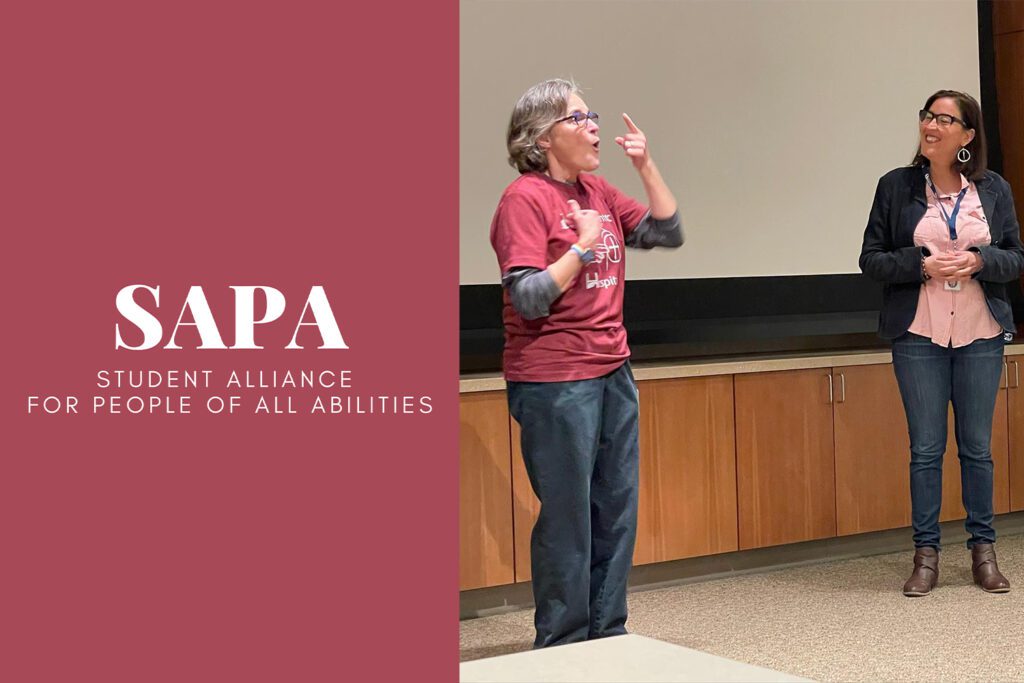Menu
Home > SAPA: Creating Better Healthcare for All

Do you ever feel anxious about being able to adequately communicate with your doctor or dentist? For most of us this isn’t a relatable emotion, but for those living with disabilities, this feeling is often a familiar one.
“Disability education, particularly in the medical community, is lacking and because it’s lacking a lot of providers leave medical school feeling like they don’t have the capacity to care for patients with disabilities,” said third-year medical student, Kayley Anderson. Thankfully, the University of Nebraska Medical Center is leading the way in this field with the help of the Student Alliance for People of All Abilities.
Partnering with the Munroe-Meyer Institute, SAPA is a student organization that is helping redesign the disability curriculum for the College of Medicine. To assist with this initiative, SAPA hosts many different events to help raise funds and awareness. One unique example is the Deaf Centric Hospital event. SAPA sends students to a hospital where the providers only use sign language. This allows the students to not only learn about and interact with the deaf community, but also experience what it’s like to interact with a health care system that isn’t built for them and understand what it feels like to live with those barriers.
For Anderson, SAPA is an organization that she is truly passionate about and is eager to make a difference in the medical field. Growing up, Anderson hadn’t interacted with many people with disabilities. Joining SAPA opened her eyes and made her realize that “… disability can happen to anyone at any time,” said Anderson. “I think that’s something we forget.”
Last year, Anderson had the opportunity to participate in the Deaf Centric Hospital event. Throughout her time there, she became more comfortable using sign language to have simple conversations with patients. One memorable encounter occurred during her interaction with a deaf couple. Anderson confidently introduced herself in sign language, expressing her pleasure at meeting them.
“They’d never had someone be able to introduce themselves without an interpreter.” Anderson recalled. “I think it’s really great they finally got to find somebody who was willing to take the time to learn something as simple as saying hi,” said Anderson. She reflects on that conversation as a very powerful moment in her life which made her realize how it’s the little things that can really make a difference for patients.
“I think I owe pretty much everything in my life to my participation with the disability community,” said Anderson. “I don’t think I would be as driven as I am without this organization.” SAPA doesn’t just provide students with better knowledge around health care for those with disabilities, but it also provides them with essential life skills that students can take with them throughout their personal and professional lives.
“There’s a lot of empathy and understanding that comes from working with this community that you don’t really get other places,” she added.
Organizations like SAPA and students like Kayley Anderson need your support to continue positively impacting the quality of health care education and quality of care for people of all abilities.
“The main thing I’ve taken away from SAPA is how to be a good ally and how to elevate people’s voices when other people aren’t listening,” Anderson said.
Your support isn’t just about writing a check — it’s about changing lives. It empowers students like Anderson to pursue their passions and make a real difference in the world. Please support initiatives that aim to create a more inclusive and compassionate health care environment for all.
© 2019 University of Nebraska Foundation